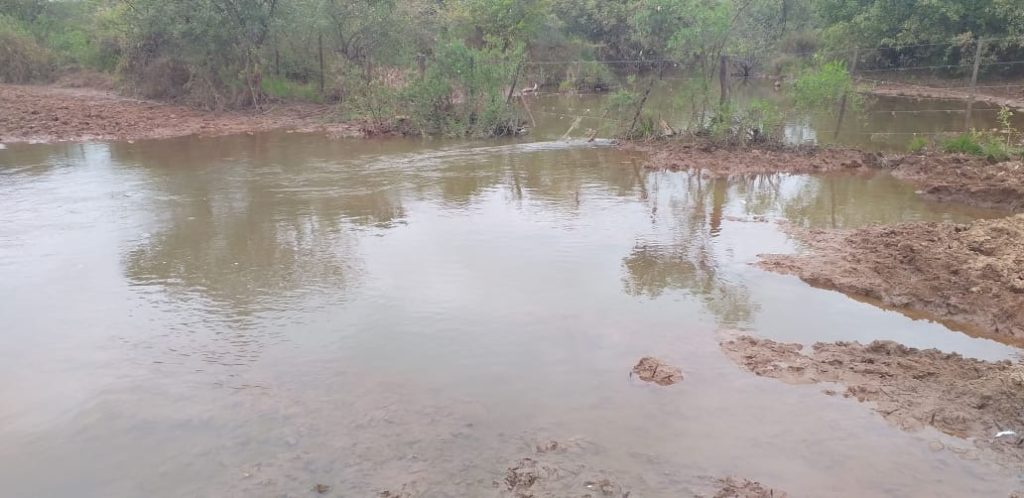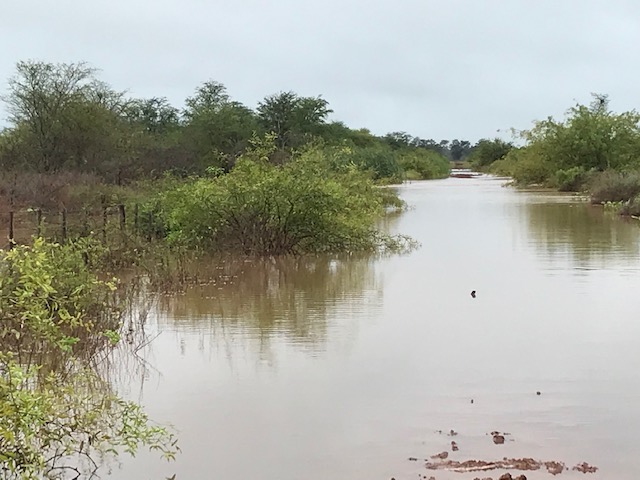We were expecting some rains to boost pastures as the current period of the year use to be very hot and dry in Salta region, but torrential rain hits Salta and Tucumán provinces in northwest Argentina. The storm and heavy rain from 8 to 9 February 2020 caused flooding and several damages, forcing also local authorities to evacuate people as you can read (“Article from Infobae, dated 11/02/20”). You can see the situation of El Dorado River which is surrounding our farm. This bridge is located 12 km upstream from the main entrance of the farm.
Over 150 mm of rain fell in 24 hours at San Bartolo causing several material damages (fences, broker trees, equipments, etc) but also affecting our cattle operation.
The corral, which has been refreshed, was affected and we had to evacuate the houses of the personal as they were under water. We never faced such a heavy rain there. The good news is that none of the personal has been hurt.

The gauchos are trying to regroup the cattle of flooded sections to transfer them to dry areas in order to prevent sanitary issues (hoof disease, tick, etc) and cattle losses (shrinking, weight loss, injury, etc). Mothers and young calves are the most sensitive categories, and need food supplementations given their morphology.
This situation will clearly affect births and natural service (peak period until mid-February) as well as the meat production (target of 350 tonnes) as the available grassing area have been reduced. Fortunately, we decided to sell some selected cattle in advance to reduce the herd and take advantage of some market opportunities.


The water has now to evacuate but we already know that it will be slow as the problem is emphasised by the illegal internal protection walls build by some farmers upper the river which affected and changed water course (a legal action is ongoing and cleaning plans have already been approved by local authorities).

The situation is complex but the team is focused to secure the herd (around 3,000 heads) with food in dry areas and to emphasis sanitary controls. The growing number of unusual and unpredictable weather events makes farming a riskier business these days.
